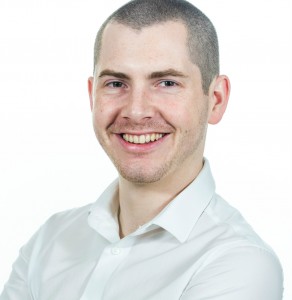Enda Young ~ MBB Member Spotlight
‘Turning a hobby into a livelihood’
 Enda Young started out studying mechanical engineering. Not a discipline you would naturally connect to mediation. But he also got involved in conflict resolution at the tender age of 17, travelled to the USA to take part in a cross community youth program on conflict resolution with the Spirit of Enniskillen Trust, and at 19 took his own group of young people back to the USA. It was also around this time that Enda had his first introduction to mediation through a one-day course from Mediation Northern Ireland.
Enda Young started out studying mechanical engineering. Not a discipline you would naturally connect to mediation. But he also got involved in conflict resolution at the tender age of 17, travelled to the USA to take part in a cross community youth program on conflict resolution with the Spirit of Enniskillen Trust, and at 19 took his own group of young people back to the USA. It was also around this time that Enda had his first introduction to mediation through a one-day course from Mediation Northern Ireland.
After completing his engineering degree, Enda did a Masters in Theory, Culture and Identity at Queens University with a focus on conflict transformation. Working in Belfast for a local outdoor activity centre, teaching young people conflict resolution skills and techniques, he said he began to understand how conflict worked at both personal and community levels. He then spent 8 weeks as a Winston Churchill Fellow in South Africa, learning about conflict resolution mechanisms, and used his experiences to strengthen his work back in Northern Ireland. On returning from South Africa, Enda had a chance meeting with a member of a local Rotary club who donated £500 for a new programme. He took this to the Belfast City Council and local Youth Council and, turned it into £20,000. The money allowed him to develop a full-scale cross-community conflict resolution programme for at-risk young men on the interfaces in Belfast.
In 2008 Enda joined TIDES Training, a mediation, training and consultancy organisation in Belfast where he currently works part time as the Manager of Mediation Services and conducts training and mediations with local government, community groups and businesses. With the support of TIDES Enda went onto become a Rotary Peace Fellow and spent 3 months at a University in Thailand to enhance his skills further where he visited Nepal and the Burmese border. That’s where he came across MBB and represented the organisation at an international Peace Symposium attended by 20,000 delegates. Since that initial meeting, Enda has helped grow the relationship between MBB and TIDES to the extent that they are now official partner organisations.
Since then, Enda has supported many of MBB’s projects including the Kenya Initiative and the Rotary Working Action group for peace, as well as practical tasks like managing the MBB twitter account. He appreciates the organisation’s broad definition of mediation as it allows room for the diversity of issues he faces in his work, whether engaging with police officers, ex-combatants, councils, community groups or businesses.
Enda is not only a conflict resolution expert and mediator however. He’s also an entrepreneur. In 2014 he co-founded Transformative Connections (TranConn) with his wife, a research consultancy looking at the use of technology for positive social change and peacebuilding. His company looks at using technology to deal with domestic conflict, prioritising dialogue over violence to deal with problems. He believes in the possibilities of using technology to enhance on-going peacebuilding initiatives and TranConn are currently writing a report into the use of technology for peacebuilding in Northern Ireland. It’s also launching FactCheckNI, the first dedicated fact-checking platform in the region in partnership with the Northern Ireland Foundation.
On behalf of MBB and TIDES, Enda has conducted workshops in Romania, Turkey and Brazil reinforcing his belief in the power of community mediation to solve conflicts around the world. In delving into his approach, he raised important questions about the need to support communities transitioning from conflict and giving people an appropriate language in mediation processes.
He credits Northern Ireland and TIDES with giving him the confidence and skills to deal with diverse conflicts, and says the field has come on significantly since he started. Despite this, he says there are still challenges to overcome.
“There’s misunderstanding about what mediation can achieve because of the ‘fluffy and vague’ language that often gets used. It means businesses don’t take mediation seriously, although it can often be a more effective way to get to the nub of a crisis, providing faster and more sustainable solutions.”
Enda feels strongly that we need to use language that helps people see how mediation can benefit them personally, socially, and financially. Quantifiable evidence and results must be shown to different audiences, so they realise that effective mediation can save them time and money.
Building a collective language of conflict resolution in society would help progress this, which Enda recommends starting at school. There is currently no national curriculum on mediation or conflict resolution, but if that were to change, Enda believes we could see a widespread change in using dialogue, rather than violence, to solve social problems.
Written by Natasha Dyer
